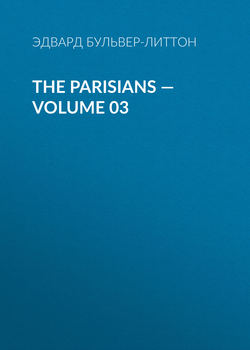Читать книгу The Parisians — Volume 03 - Эдвард Джордж Бульвер-Литтон, Эдвард Бульвер-Литтон - Страница 3
BOOK III CHAPTER III
ОглавлениеM. Savarin was one of the most brilliant of that galaxy of literary men which shed lustre on the reign of Louis Philippe.
His was an intellect peculiarly French in its lightness and grace. Neither England nor Germany nor America has produced any resemblance to it. Ireland has, in Thomas Moore; but then in Irish genius there is so much that is French.
M. Savarin was free from the ostentatious extravagance which had come into vogue with the Empire. His house and establishment were modestly maintained within the limit of an income chiefly, perhaps entirely, derived from literary profits.
Though he gave frequent dinners, it was but to few at a time, and without show or pretence. Yet the dinners, though simple, were perfect of their kind; and the host so contrived to infuse his own playful gayety into the temper of his guests, that the feasts at his house were considered the pleasantest at Paris. On this occasion the party extended to ten, the largest number his table admitted.
All the French guests belonged to the Liberal party, though in changing tints of the tricolor. Place aux dames! first to be named were the Countess de Craon and Madame Vertot, both without husbands. The Countess had buried the Count, Madame Vertot had separated from Monsieur. The Countess was very handsome, but she was sixty; Madame Vertot was twenty years younger, but she was very plain. She had quarrelled with the distinguished author for whose sake she had separated from Monsieur, and no man had since presumed to think that he could console a lady so plain for the loss of an author so distinguished.
Both these ladies were very clever. The Countess had written lyrical poems entitled "Cries of Liberty," and a drama of which Danton was the hero, and the moral too revolutionary for admission to the stage; but at heart the Countess was not at all a revolutionist,—the last person in the world to do or desire anything that could bring a washerwoman an inch nearer to a countess. She was one of those persons who play with fire in order to appear enlightened.
Madame Vertot was of severer mould. She had knelt at the feet of M. Thiers, and went into the historico-political line. She had written a remarkable book upon the modern Carthage (meaning England), and more recently a work that had excited much attention upon the Balance of Power, in which she proved it to be the interest of civilization and the necessity of Europe that Belgium should be added to France, and Prussia circumscribed to the bounds of its original margraviate. She showed how easily these two objects could have been effected by a constitutional monarch instead of an egotistical Emperor. Madame Vertot was a decided Orleanist.
